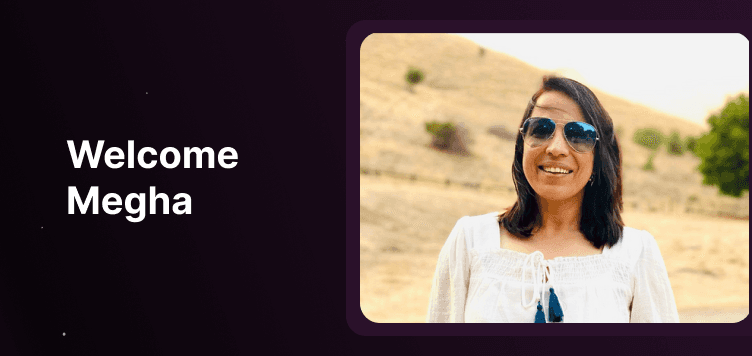Meet the Engineers: Megha Sarma
At Hypermode, we take a lot of pride in the quality of our product, design, and engineering teams. Meghalim Sarma, one of our key engineers, brings a wealth of experience and a passion for tackling complex technical challenges. In this post, we’ll dive into Megha’s journey and explore her contributions to Hypermode, with a special focus on her work with Dgraph and cloud infrastructure.
A Career Steeped in Data
KVG: Megha, can you introduce yourself and tell us a bit about your career before joining Hypermode?
Megha: I’m Meghalim Sarma, but I go by Megha. I joined Hypermode by way of the Dgraph acquisition. I joined Dgraph in early 2022. Before then, I worked for ten years at MarkLogic, an early NoSQL document database company. Prior to that, I spent five years at Oracle. My career has always revolved around databases—starting with RDBMS, moving to NoSQL, and then to graph databases.
KVG: What kind of projects did you work on at Oracle?
Megha: At Oracle, I started on the OCI (Oracle Call Interface) team, where we worked on database interactions using C. After a couple of years, I moved to a new team focused on service-oriented architecture, working on integration technology. I left to pursue my Masters at UC Berkeley focusing on Information Science and Management.
After graduating, I ended up joining a fledgling startup called MarkLogic.

KVG: What was it like being so early at MarkLogic? They were one of the first non-relational databases to become popular. That must have been an interesting experience.
Megha: MarkLogic was a great experience. When I joined, it was a small company with a big big vision.
Initially, I worked on the database’s API, helping to build connectors and language APIs like REST, Java, and Node.js. Later, I led the QA, scalability teams and finally the Cloud Services team. One of the reasons MarkLogic was successful was its ability to scale to petabyte levels. This was basically impossible to do anywhere else at the time. However, because we were one of the first to scale to that level, we had to invent all new sorts of QA and data integrity processes. We continuously ran multi-day regression testing cycles. It was a great place to push the boundaries of data technology.
Rebuilding with Dgraph
KVG: You joined Dgraph in 2022, right when Dgraph was being restarted. What was that experience like?
Megha: Yes, I joined Dgraph in early 2022. It was a fun but very challenging time. We had limited resources. We were spinning back up services that had been unmanaged for several months. While many of our customers and community members were frustrated, they believed deeply in our technology and wanted us to not only survive but to grow and continue to execute on our shared vision of the world’s most ergonomic and performant database.
It was a stressful situation, but it was incredibly rewarding to eventually stabilize things and start to grow again.
KVG: What was one of the most challenging technical projects you’ve worked on so far?
Megha: One of the most technically demanding projects was optimizing Dgraph’s cloud infrastructure to reduce costs and enhance stability while maintaining performance. This involved tuning a complex mix of cloud infrastructure, observability stack, and Dgraph Cloud service stack. Initially, we relied on spot instances, which led to outages when they were terminated. We migrated to on-demand instances, restructured our autoscaler to prioritize smaller nodes, and implemented several backend changes to improve cost efficiency. These efforts not only reduced expenses and improved service stability but also significantly decreased “page fatigue” and lessened the on-call burden for our team.
KVG: What are you excited to work on next at Hypermode?
Megha: I’m excited about the possibilities of integrating AI with our database technologies. Graphs and LLMs are such natural partners. We recently released vector search capabilities in Dgraph, which has generated a lot of excitement. I’m looking forward to exploring how we can combine this with Hypermode’s platform to empower developers to build intelligent services that live up to the hype of AI.
Advice for Aspiring Engineers
KVG: You’ve had such an incredible career. Do you have any advice for engineers, especially those early in their careers?
Megha: My advice is to embrace challenges and not be afraid to show vulnerability. If you’re not afraid to say that you don’t know something, you can learn and grow. For those transitioning into management, it’s important to learn how to delegate and trust your team to bring fresh ideas. You’d be surprised at how creative people can get when they have the space to experiment and solve problems.
Conclusion
Megha Sarma’s story is one of perseverance, continuous learning, and a passion for solving complex problems. At Hypermode, we’re proud to have her on our team, driving innovation and ensuring that our products remain at the forefront of technology. As we continue to grow and evolve, Megha’s contributions will undoubtedly play a crucial role in shaping the future of Hypermode.



